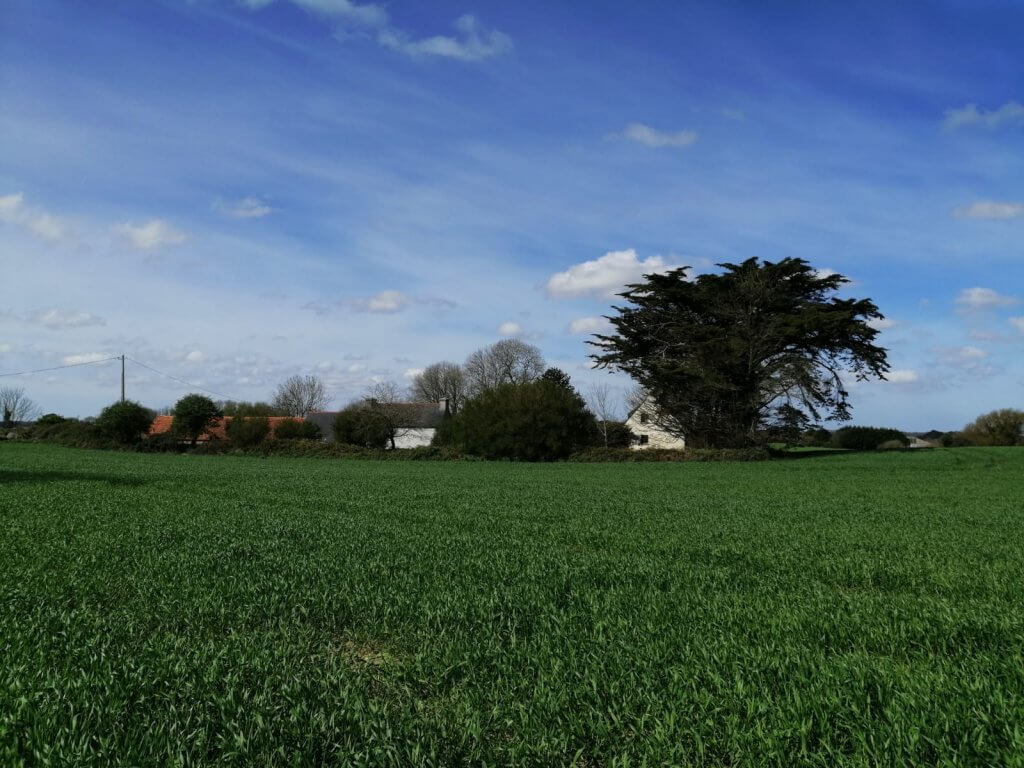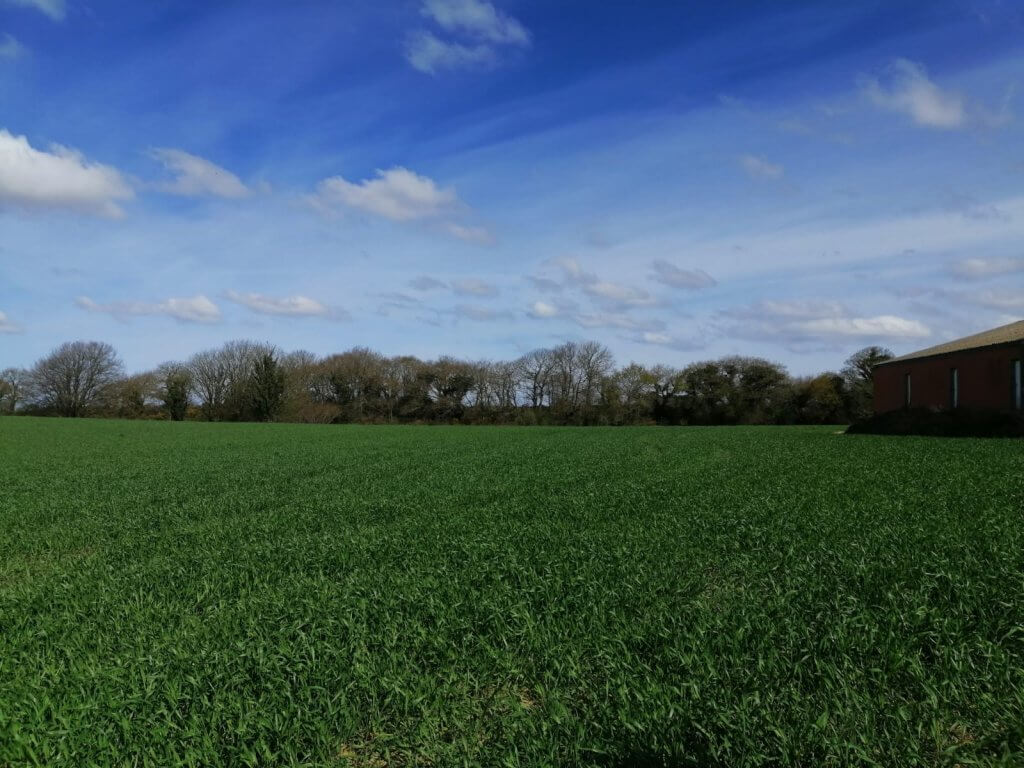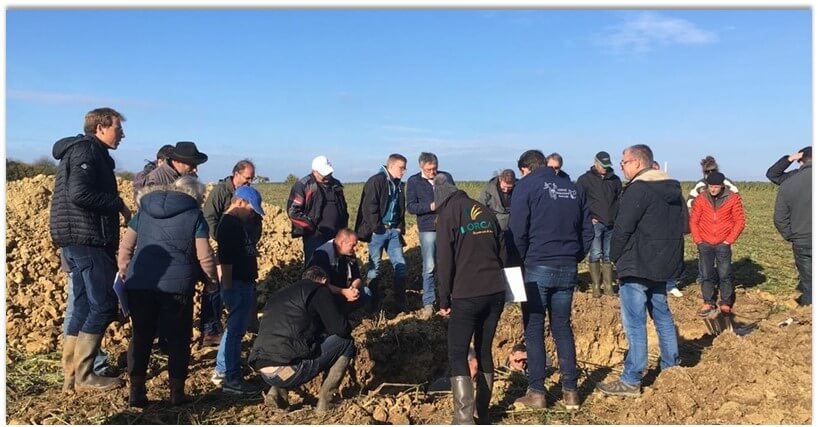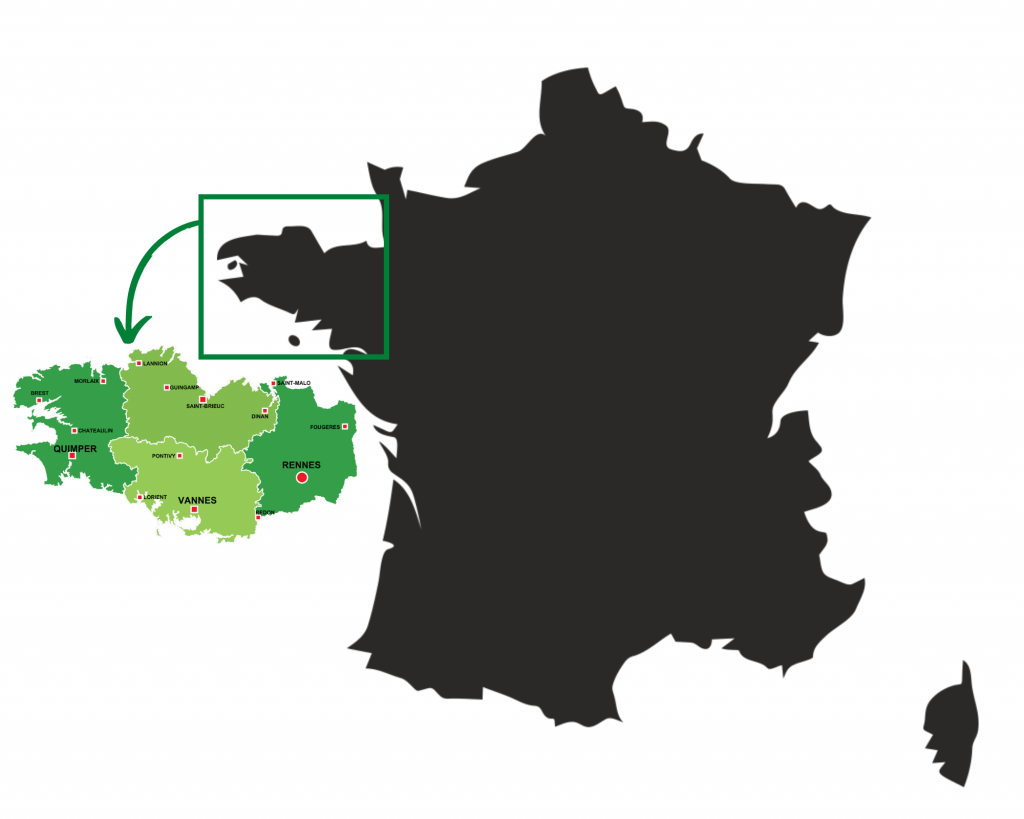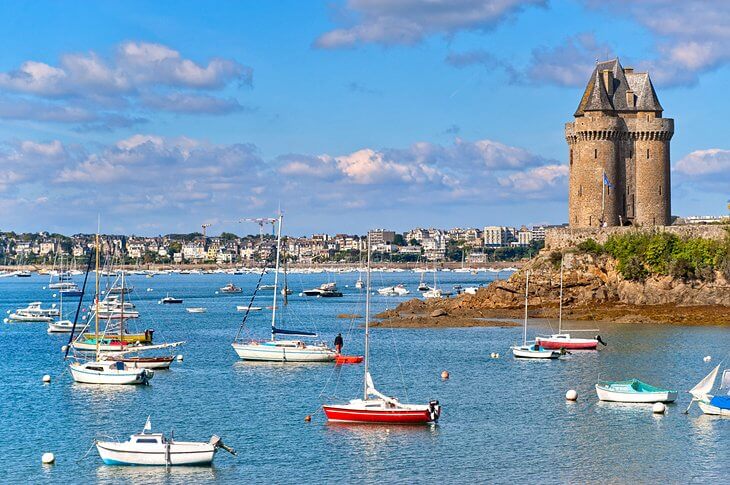Livelihoods is investing for the first time in Europe to accelerate the transition of 11,000 hectares to regenerative agriculture
All over the world, agriculture is undergoing major changes. Indeed, the sector is facing a major challenge: how to feed a world population that will reach 10 billion people by 2050 while preserving our natural capital? Since their creation, Livelihoods investment funds have focused their efforts on small producers in emerging countries. If the priority in these countries is to increase yields, feed a growing population[1] while restoring fragile ecosystems, rethinking agricultural models is also urgent and complex in developed countries. The intensive models that have been generalized over the last few decades have made it possible to greatly increase yields. But they have generated with them a degradation of the land, a massive loss of biodiversity and a soil that can no longer regenerate itself. These models have run out of steam.
How can soil health be restored? Is it possible to combine productivity and preservation of biodiversity? How can we reinvent a sustainable relationship between the farmer and nature?
Livelihoods bets on regenerative agriculture. An innovative approach based on agricultural practices that restore soil health, increase biodiversity and capture carbon, while maintaining yields. The Livelihoods Carbon Fund (LCF2) is now investing in its first project in Europe: converting 11,000 hectares to regenerative agricultural practices in the Brittany region in France, which has been a pioneer in this approach. Conducted in partnership with the Brittany Region (territorial authority composed of the Regional Council of Brittany which decides of the political and agroeconomic orientations of the region), the Regional Chamber of Agriculture (public institution that accompanies the agroecological transition of the region through its network of agriculture professionals, engineers, technicians), and local association Sols d’Armorique, this project called “Sols de Bretagne” will support around a hundred farmers in their transition to regenerative agriculture. The project will also help sequester 140,000 tons of CO2 over 10 years.
Reinventing an efficient and sustainable agriculture: the transition is underway in the Brittany region of France
As the leading agricultural region in France and the third largest in Europe, Brittany has put agroecology at the heart of its economic, social and environmental strategy. About 20 years ago, a handful of farmers in the Finistère department, motivated to restore the health of the soil, embarked on a new approach: regenerative agriculture. Also called conservation agriculture because its main objective is to conserve the organic properties of the soil, regenerative agriculture is an agroecological production model that places soil restoration at the heart of the system. It is based on agricultural practices whose primary objective is to regenerate the soil, in other words to increase its organic content to improve its fertility.
This approach, still marginal in France, is nevertheless growing: it is estimated that 4% of French farmers practice regenerative agriculture. Learn more about regenerative agriculture.
“Soils of Brittany” project: helping 100 farmers succeed in the challenge of adopting regenerative agricultural practices
This new Livelihoods project aims to move to a larger scale: convert 11,000 hectares to regenerative agriculture over 10 years. The project will support farmers who are ready to make the transition. It is aimed at farmers located in the four departments of Brittany (Finistère, Côtes d’Armor, Morbihan, Ille-et-Vilaine). Open to plant production (cereals, vegetables, etc.) as well as animal production, the project is aimed at farms in the region regardless of their size (the regional average is 53 hectares per farm).
The project will also help train and support a young generation of farmers. This is a priority socio-economic issue in the region given the numerous retirements expected in the next 10 years (in France, 50% of farmers will retire in the next ten years) [2].
Accompany each farmer during the transition phase
Making a successful transition to regenerative agriculture means completely rethinking the management of the farm. The first objective of the project is therefore to accompany the farmers with the necessary training and tools. The emphasis will be on the exchange and sharing of experience between the farmers involved in the project, which will be based on the know-how developed by the group of pioneer farmers over several years.
Farmers will be able to train with their peers on the three fundamental practices of regenerative agriculture: reduction of tillage (reduction of ploughing), permanent soil cover (plant cover to continuously nourish the soil), diversification of crop rotations that will allow the regeneration of soil biomass and thus increase its fertility.
Mr. Jacques Simon’s farm in Plouider, Finistère, is a pioneer in regenerative agriculture. Since 1991, Mr. Simon has been running a 160-hectare farm with 150 sows. Since 2009, he has progressively adopted the principles of regenerative agriculture, with the cessation of ploughing on his corn and wheat fields, the implementation of plant cover to nourish the soil and the diversification of crop rotations with the integration of rapeseed and broad bean.
Benefits for the soil, for biodiversity and… the farmers
The project aims to generalize the benefits observed over the past 10 years by the pioneer farmers. Regenerative agriculture has helped to recreate biomass, make soils more fertile, and maintain yields. This model boosts the recreation of organic matter that enhances above and below soil biodiversity.

Precise measurements have been carried out during several years in Breton farms engaged in regenerative agriculture. They have shown that the number of earthworms has more than doubled. The population of beneficial insects has increased fivefold. This organic richness in turn improves the water retention and filtration properties of the soil.
On the economic front, regenerative agriculture reduces production costs by abandoning plowing, simplifying tillage, and reducing inputs to a strict minimum. In this model, tractors that represent a costly investment and operational use are no longer necessary. The farms that have adopted this model have generally increased their margins. The results over several years show that yields are maintained at/or near the level of conventional agriculture. With lower production costs, the farmer can therefore increase his income at a constant market price.
Moreover, in a profession where working days are often long, the regenerative agriculture model helps reduce the considerable time spent on the farm. This freed up time can be reinvested in the management of the farm and/or in a better work-life balance. The transition to regenerative agriculture thus creates more attractive working conditions, especially for the younger generations of farmers who aspire to a better life balance and a higher income.
Managing a farm as a living ecosystem is certainly more complex. But it also brings a lot of satisfaction. The testimonies of the farmers involved in this approach are unanimous on the pride they have regained for a profession that has been revalued and that allows them to produce while preserving nature. This is an additional source of motivation for farmers who are starting out. Regenerative agriculture requires a fine knowledge and a very good know-how. Faced with learning that can sometimes be disappointing, the farmer can become discouraged and return to conventional practices. This is why Livelihoods project will provide support throughout the transition.
An innovative public-private partnership to support farmers
“Soils of Brittany” project is based on a unique investment model. It brings together a private impact investment fund – the Livelihoods Carbon Fund (LCF2), the Region of Brittany, the Regional Chamber of Agriculture, and the local association “Sols d’Armorique”, which brings together a network of farmers and technicians who are passionate about regenerative agriculture and want to come together to share new practices. The association will mobilize its network throughout the region to recruit farmers for the project.
Livelihoods and the Brittany Region are investing equally in the project over 10 years. This investment, which amounts to six million euros, will provide Breton farmers with agronomic and financial support over 10 years to help them implement regenerative agriculture practices. On the one hand, this support takes the form of financial aid, which will be paid to farmers who commit to the project. Reinforcing their entrepreneurial approach, the farmers will be free to invest this financial contribution in the management of their farm according to their needs (acquisition of equipment, risk-taking…) This aid also aims to reward their environmental services.
On the other hand, this investment will finance the technical support and training needed to make the transition a success. For this, farmers will be guided by agricultural advisors and technicians to establish a diagnosis of their farm, to structure their project (for example to define which crop rotations) and to put in place the practices adapted to the realities of their farm.
During the first 5 years of the project, known as the transition phase, the Region and Livelihoods are committed to paying beneficiaries €80 per hectare annually and then €46 per hectare over the following 5 years, known as the maintenance phase. The Livelihoods Carbon Fund will also measure annually the carbon stored in the soil as well as the reduction of carbon emissions through reduced fuel consumption and reduced chemical fertilizers.
A territorial approach rooted in the region’s environmental and economic transition
Developing environmentally friendly agriculture in Brittany is even more important as this French region located at the western tip of Europe is both a very large tourist region and a region where agricultural activity and food industries are extremely strong.
Developing environmentally friendly agriculture in Brittany is all the more important as this French region located at the western tip of Europe is both a very large tourist region and a region where agricultural activity and food industries are extremely strong.
The international reputation of Brittany’s coastal landscapes and tourist activities is well established. Achieving a harmonious cohabitation between tourism and the agri-food sector, two sectors that are major providers of employment, is therefore a strategic challenge for this region. The Region of Brittany has made it a priority to support the necessary transition of farms. It has therefore set up a network of pilot farms and supports a network of farmers committed to agricultural practices that regenerate the soil, biodiversity and water quality. It mobilizes three types of support: agri-environmental and climatic measures (MAEC) that concern mixed farming, livestock or field crops, conversion to organic farming and assistance for the acquisition of specific equipment (agri-environmental investments).
The project could encourage other regions in France to replicate this model. In addition to its own network of farmers, the Sols d’Armorique association will also mobilize the APAD [4] network (Association for the Promotion of Sustainable Agriculture), which groups more than 1,000 farmers into 13 regional associations.
[1] According to FAO, 700 million people in rural areas of the world live in extreme poverty.
[2] Source : https://www.msa.fr/lfy
[3] More on the agroecological transition of the Brittany region (in French).
[4] Born from the will of farmers to adopt the most successful agricultural system to preserve the health of the soil, APAD is a French association that aims to contribute to the awareness of the issues related to soil restoration and to accompany farmers in their approach.


